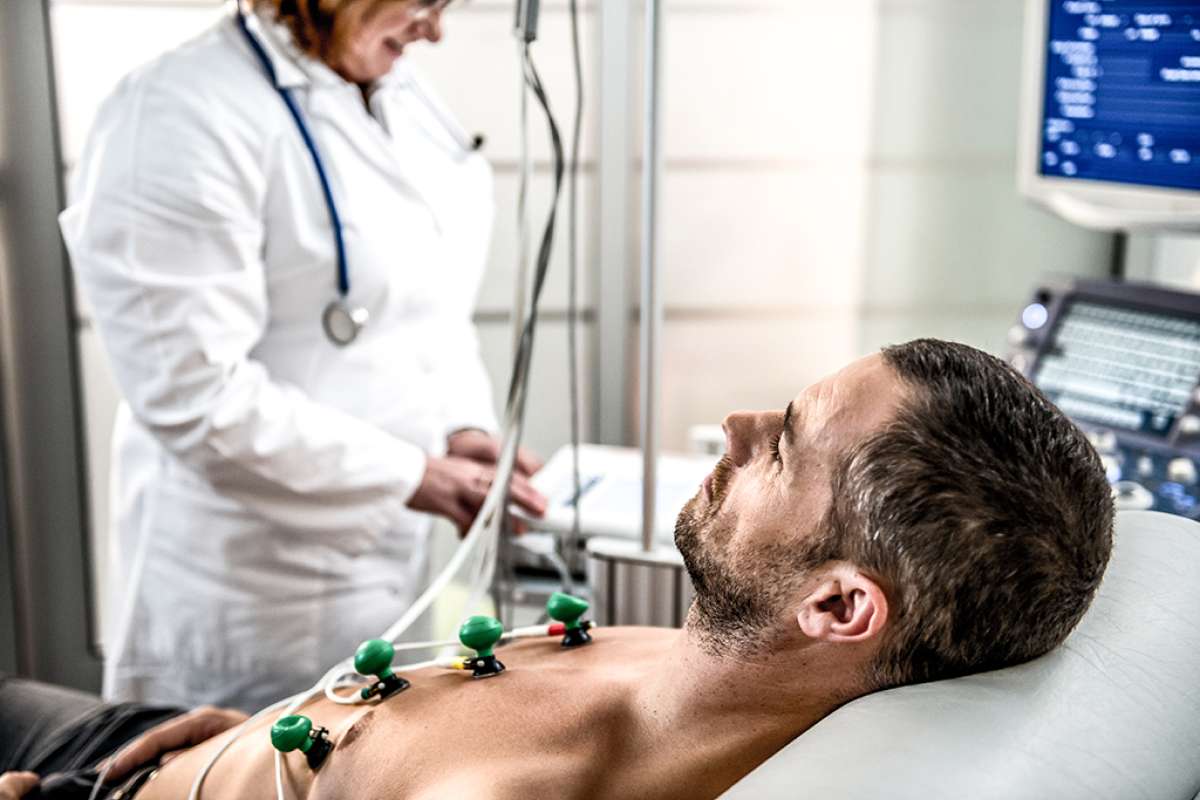If you’ve ever watched a TV medical drama such as “ER” or “Grey’s Anatomy,” then you might have seen an emergency room doctor order an EKG. This common heart test is used to help diagnose many health conditions, including cardiac events like heart attack.
While often used in an emergency setting, EKG — short for electrocardiogram — may also be used as part of a regular medical visit, including a cardiology appointment. At Georgia Heart Institute, for example, you might have an EKG during a routine visit with one of our non-invasive cardiologists to check up on your heart health.
What is the purpose of an EKG, and what can this test tell us about your heart? Keep reading for the details.
What is an EKG?
An electrocardiogram, or EKG, measures your heart’s electrical activity. Every time your heart beats, an electrical signal travels through the heart. This signal tells the four heart chambers to squeeze in rhythm, allowing the heart to pump blood out into the body.
When these signals go awry, it can cause a number of heart problems, including abnormal heart rhythms. Heart attack can also lead to changes in these signals based on the part of heart muscle affected, and EKG can help diagnose it. A medical provider may order an EKG to get a good look at whether your heart is functioning normally or to find the underlying cause of symptoms.
An EKG may be recommended if you’re experiencing heart-related symptoms such as shortness of breath, chest pain, irregular heartbeats, dizziness or fatigue. This quick, painless test may also be used to see if a heart therapy, like a pacemaker or certain medications to keep your heart in normal rhythm, are working effectively.
During an EKG, you lie flat on an exam table with electrodes placed on your arms, legs and chest. These electrodes read your heart’s electrical activity.
What does it mean to have an abnormal EKG?
EKG results look like waves, going up and down as the heart contracts and pumps blood. Medical providers observe those wave forms to gauge how your heart is working. They are looking for a steady rhythm, demonstrating that all four chambers of the heart are working efficiently.
In particular, they are looking for how long it takes for an electrical signal to pass through the heart, as well as how much electrical activity is passing through the heart muscle.
An abnormal EKG may indicate arrhythmia, cardiomyopathy, congenital heart defects, coronary artery disease, heart attack, heart failure or heart valve diseases. Since EKG is usually the first test performed, it can lead to further testing based on the results and/or your symptoms. A cardiologist can use this information along with the results of other tests to make a diagnosis and determine how to treat your condition.
In some cases, an abnormal EKG result may be related to a simpler problem, such as abnormal heart rhythms caused by an electrolyte imbalance or the side effects of a medication.
If you are told that your EKG is abnormal, don’t panic. This is simply the first step toward treating a medical issue, providing your care team with the information they need to care properly for you.
Next steps
Ready to learn more about your heart health? Schedule an appointment with a cardiologist to get started.
Moghniuddin Mohammed, MD, is a non-invasive cardiologist with Georgia Heart Institute.



